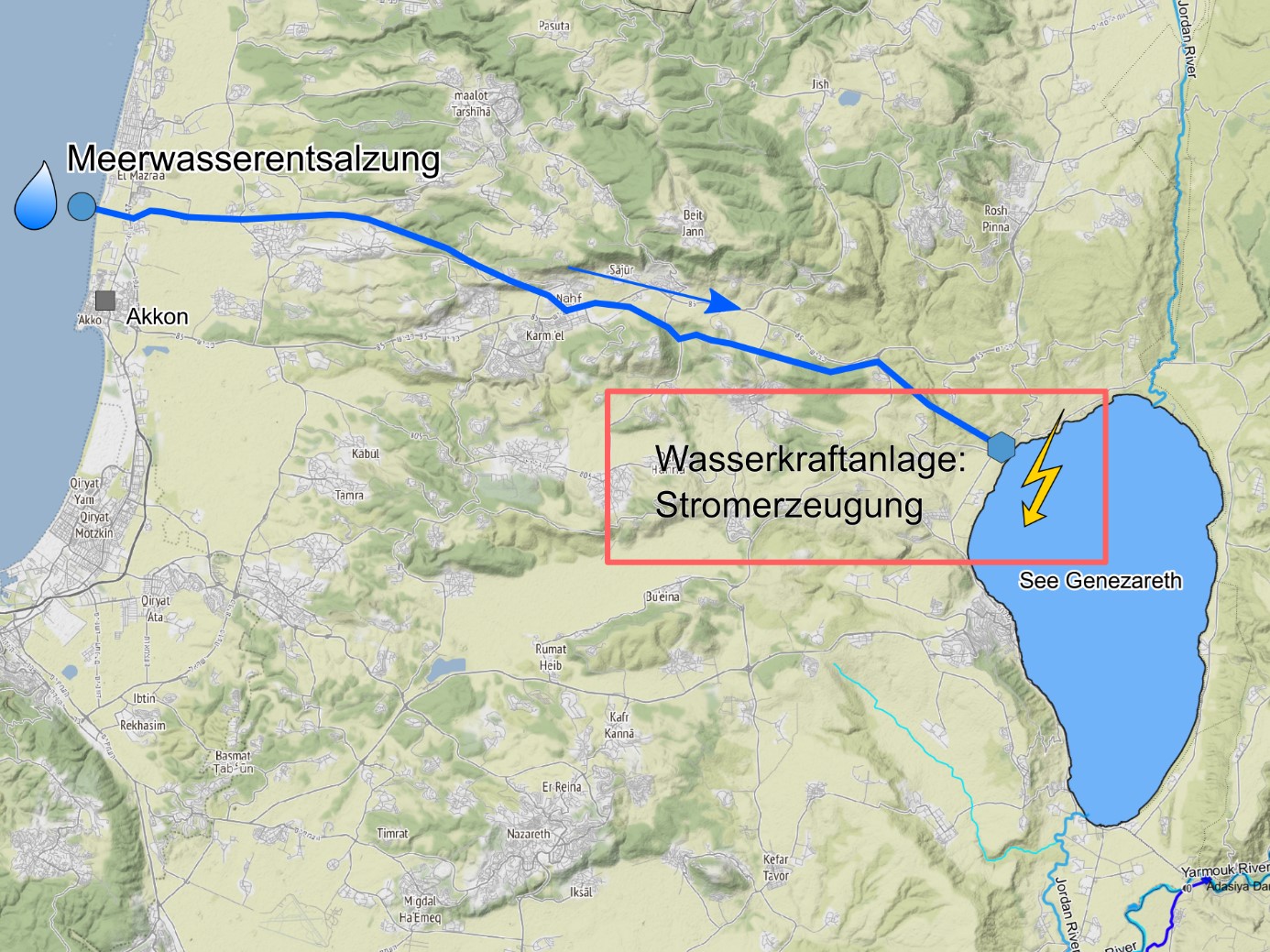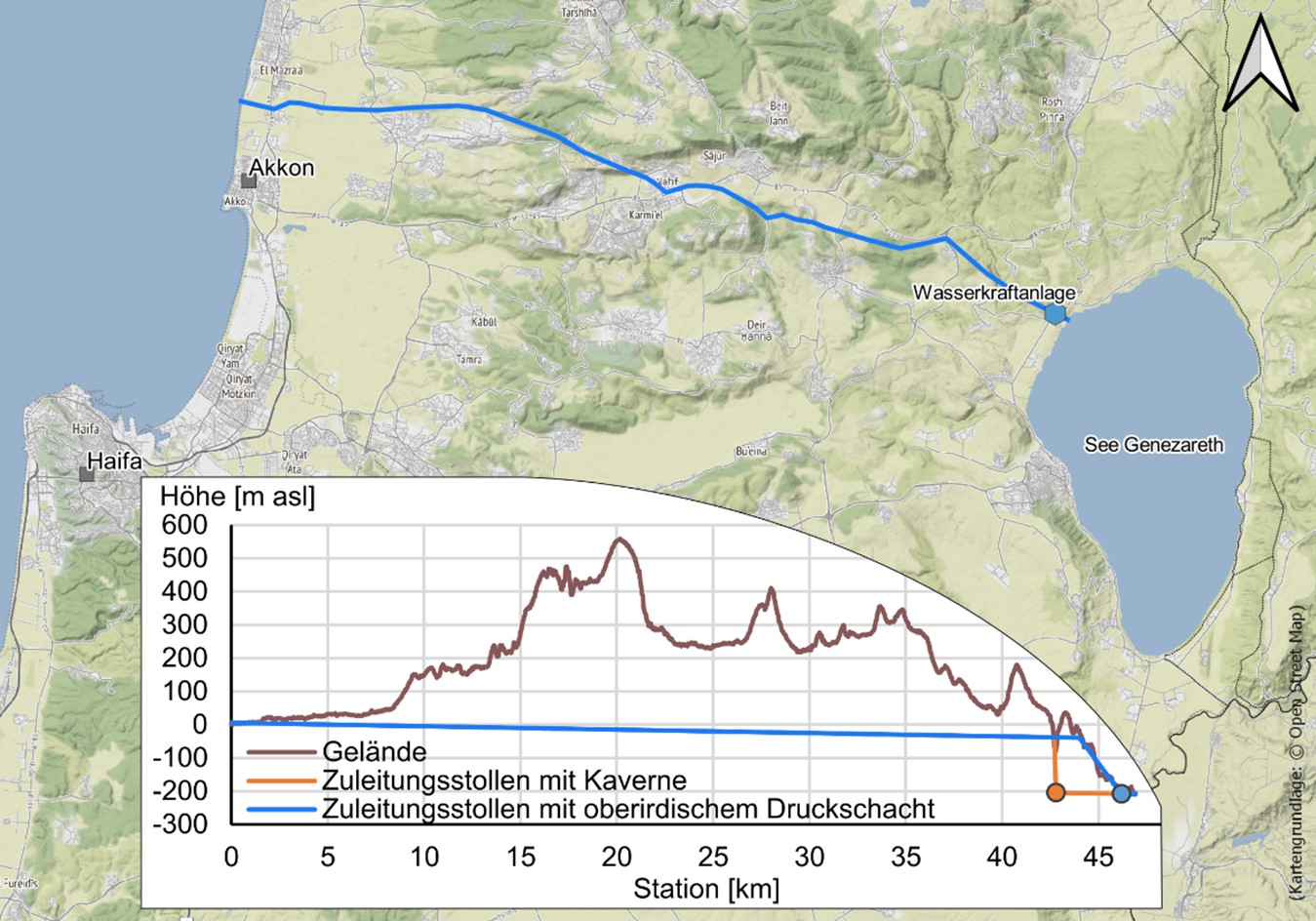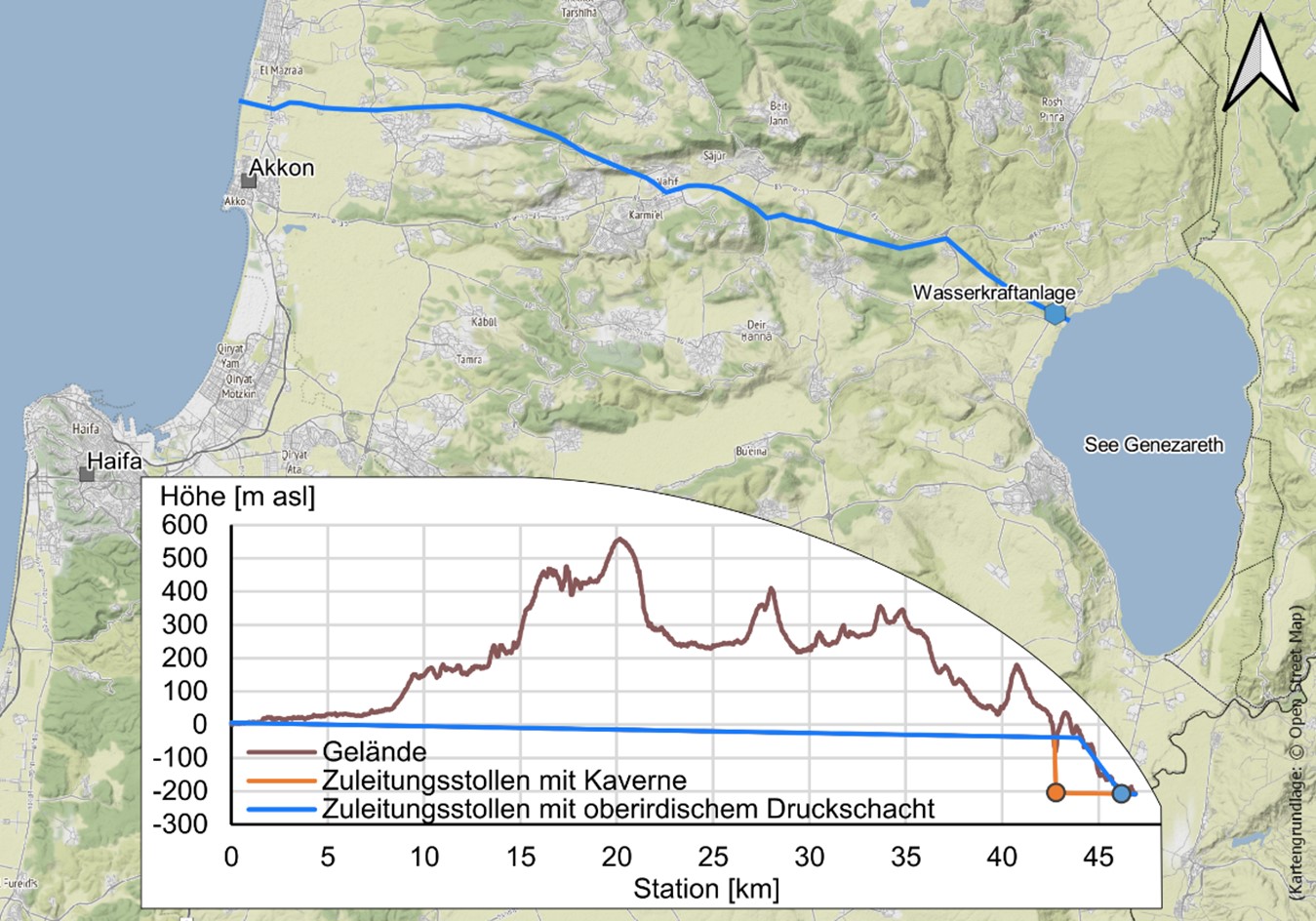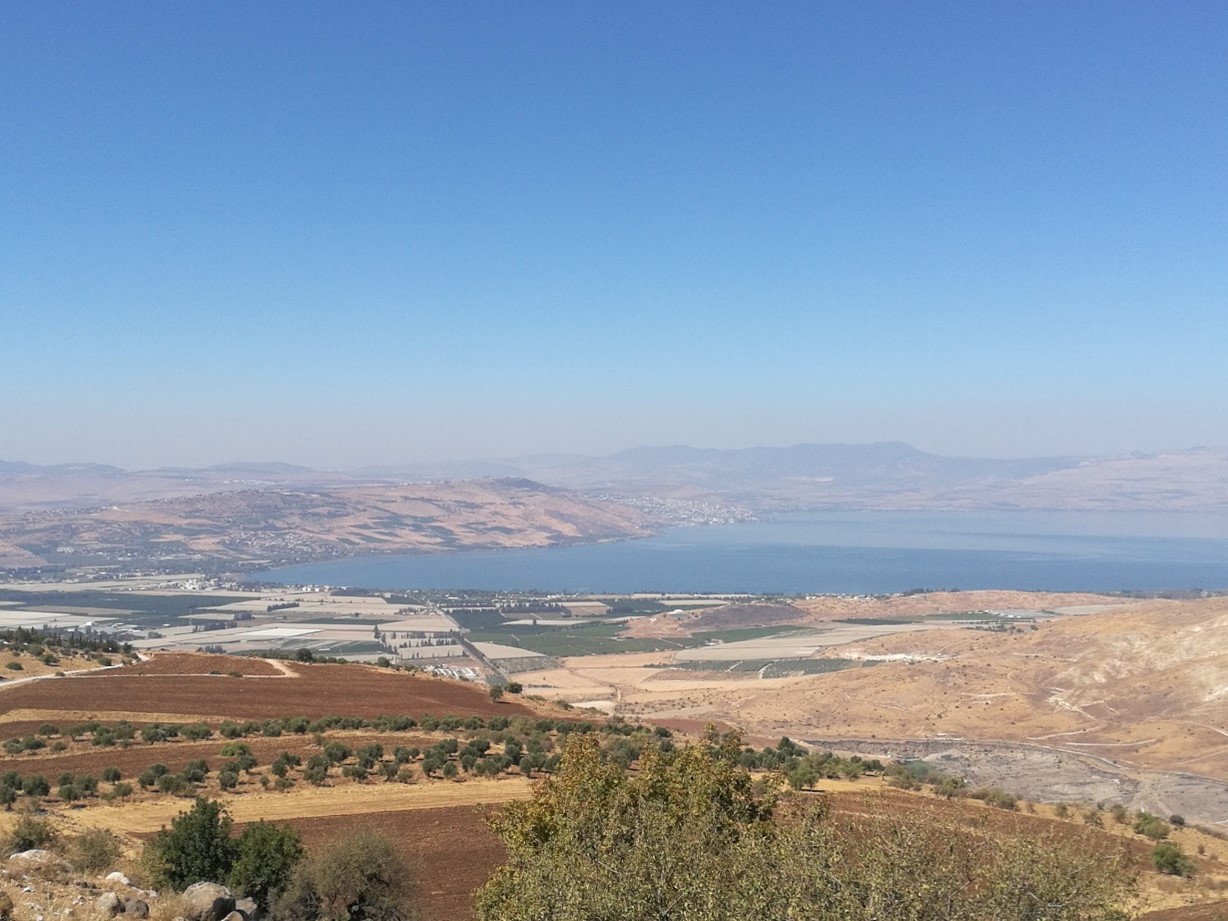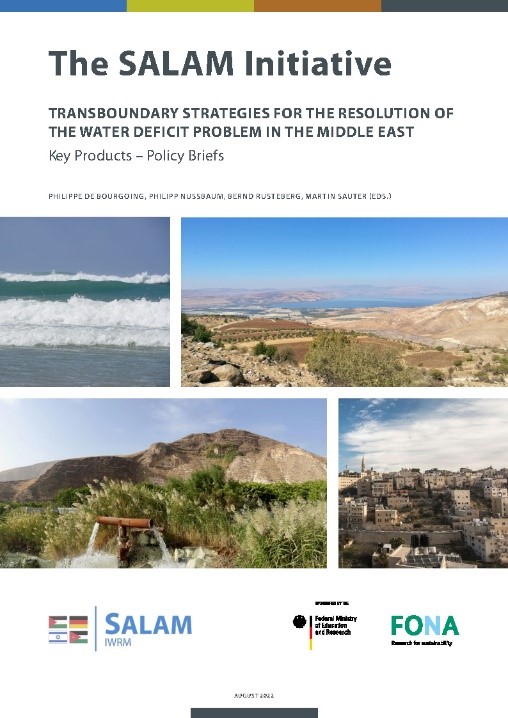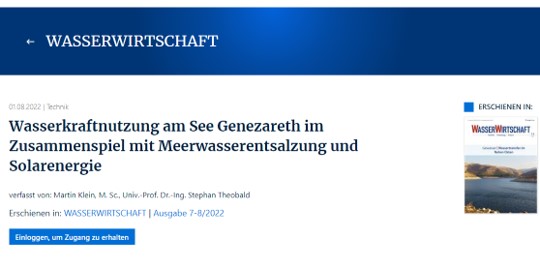The analysis out of the SALAM2 project shows the hydropower potential of Lake Tiberias resulting from the elevation difference to the Mediterranean Sea and a possible supply of the lake with desalinated seawater. In addition to various management strategies, the interaction with solar energy is also considered.
The Israeli electricity supply is with 96% heavily based on fossil fuels. In order to reduce this high dependency, 30% of the electricity supply is to be provided by regenerative energies by 2030. For this purpose, the use of solar energy in particular is being expanded, flanked by the expansion of hydropower. But in Israel the development of hydropower is limited due to the small number of natural surface waters. However, the resulting energy potential by supplying deeper-lying areas with desalinated seawater can be used for generating electricity by hydropower. For example, the supply of desalinated seawater from the Mediterranean coast is being discussed for Lake Tiberias.
Since the lake lies about 200 m below sea level, the elevation difference could be used to generate electricity by a hydropower plant. In this potential analysis carried out, a range of water production options of the desalination plant was studied to consider different scenarios, like an additional water supply to Jordan.
Depending on the water production as well as the hydraulic system of the supply tunnel, the resulting capacity of the hydropower plant would be between 9.3 MW and 47.5 MW. With this capacity, an annual electricity production between 78 GWh and 400 GWh could be achieved. Considering the electricity demand of the desalination plant, a hydropower plant at Lake Tiberias could thus regain between 11 and 16% of the electricity required by the desalination plant. In addition, intermittent operation of the hydropower plant, i.e., alternating turbine and storage operation, could achieve synergistic interactions with other energy sources such as solar energy. This would contribute to increasing grid stability as well as support Israel's energy policy with the expansion of renewable energy.

